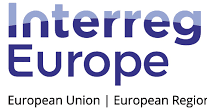
The Interreg third call for proposals is now open!
EU funding opportunities 13 March 2017The Interreg Europe programme, financed by the European Regional Development Fund (ERDF), is designed to support policy-learning among the relevant policy organisations with a view to improving the performance of regional development policies and programmes. It allows regional and local public authorities and other players of regional relevance across Europe to exchange practices and ideas on the way public policies work, and thereby find solutions to improve their strategies for their own citizens.
The Interreg Europe programme has an ERDF budget of EUR 359 million for the 2014-2020 period and a thematic focus on the following four policy topics, each related to regional development:
- Research, technological development and innovation
1.1 Improve the implementation of regional development policies and programmes, in particular programmes for Investment for Growth and Jobs and, where relevant, European Territorial Cooperation programmes, in the field of research and innovation infrastructure and capacities notably in the framework of Smart Specialisation Strategies.
1.2 Improve the implementation of regional development policies and programmes, in particular programmes for Investment for Growth and Jobs and, where relevant, European Territorial Cooperation programmes, that support the delivery of innovation by players in regional innovation chains in areas of “smart specialisation” and innovation opportunity
- Competitiveness of SMEs
2.1 Improve the implementation of regional development policies and programmes, in particular programmes for Investment for Growth and Jobs and, where relevant, European Territorial Cooperation programmes, supporting SMEs in all stages of their life cycle to develop and achieve growth and engage in innovation
- Low-carbon economy
3.1 Improve the implementation of regional development policies and programmes, in particular programmes for Investment for Growth and Jobs and, where relevant, European Territorial Cooperation programmes, addressing the transition to a low-carbon economy notably in the framework of Smart Specialisation Strategies
- Environment and resource efficiency
4.1 Improve the implementation of regional development policies and programmes, in particular Investment for Growth and Jobs and, where relevant, European Territorial Cooperation programmes, in the field of the protection and development of natural and cultural heritage.
4.2 Improve the implementation of regional development policies and programmes, in particular programmes for Investment for Growth and Jobs and, where relevant, European Territorial Cooperation programmes, aimed at increasing resource-efficiency, green growth and eco-innovation and environmental performance management
Sustainable development is one of the main pillars of Interreg Europe. The programme supports several priority axes and specific objectives that focus fully on sustainable development, notably: Low-carbon economy (priority 3/ specific objective 3.1) and Environment and Resource Efficiency (priority 4/ specific objectives 4.1 and 4.2).
Any of the following organisations based in the 28 EU Member States, as well as Norway and Switzerland are eligible for Interreg Europe funding:
- National, regional or local public authorities
- Institutions governed by public law (e.g. regional development agencies, business support organisations, universities)
- Private non-profit bodies.
Under the Interreg Europe programme, the project activities are co-financed by the ERDF at either 75% or 85% depending on the legal status of the project partner. The remaining 25% or 15% must be provided by the partners themselves. Partners from Norway are not eligible to receive funding from the ERDF, but may receive funding of 50% from pre-allocated national funds, which Norway makes available in the context of its direct participation in the Interreg Europe programme.
Projects are required to last between 3 and 5 years and to involve partners from at least three countries, of which at least two partners must be from EU Member States and financed by the Interreg Europe programme. The involvement of authorities responsible for the policy instruments addressed by the project is therefore a pre-requisite.
The total budget and ERDF contribution to projects depends on different factors. Based on the INTERREG IVC experience, the average total ERDF budget of a project is expected to be between 1 and 2 million euros.
Applications are submitted online through the Interreg Europe online system (iOLF).
The deadline for the submission of the Application Forms is on the 30 june 2017.
More detailed information on Interreg programme can be found here.







